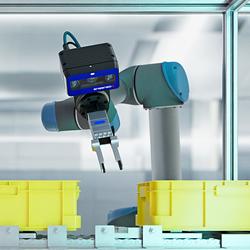Google Impact Challenge selects Nevada Institute for Autonomous Systems for Innovative Workforce Development Program
For the first time in Nevada, with the training and support of Google, NIAS can help bridge the labor supply and skills gap for future aviators by harnessing the power and excitement generated by the world’s fastest growing Autonomous Systems Industry.
The Nevada Institute for Autonomous Systems (NIAS) was selected as a Google Impact Challenge winner under the Google.org Impact Challenge Nevada for its innovative Workforce Development Program called ARISE - Attaining Resilience and Independence through Support and Education. All Nevada non-profits had the opportunity this past summer to compete for one of five coveted Google Impact Challenge winners by submitting their innovative proposals to Google to create economic opportunity in Nevada. NIAS was further screened by Google through a rigorous interview process before they were recommended to a Nevada panel of judges to further evaluate and select as one of five winners. The panel of judges was made up from senior Nevada business and economic development leaders across Nevada including former Governor Brian Sandoval. The Nevada judges based their selection decision on four key criteria: community impact, innovation, reach, and feasibility. All five winners will receive $175,000 in grants and training from Google to jumpstart their ideas.1
For the first time in Nevada, with the training and support of Google, NIAS can help bridge the labor supply and skills gap for future aviators by harnessing the power and excitement generated by the world's fastest growing Autonomous Systems Industry. ARISE will change the lives of under-served young adults by combining a new resiliency perspective with STEM training, on-the-job work experience, and mentorship to equip the under-served with skills to better adapt within the increasingly dynamic environment of the modern-day workforce and apply those skills to the challenges they face in their everyday lives.
According to Google and the National Skills Coalition, middle-skills jobs account for 51% of all jobs in Nevada, but only 49% of state workers are ready to access these jobs.2 According to a FAA press release in 2018, titled, "FAA Hits 100K Remote Pilot Certificates Issued," more than 100,000 people have obtained autonomous systems pilot certification and licensing, and the FAA predicts that the autonomous systems service industry will demand over 400,000 pilots by 2021 - a 400% increase from today.3 Large employers are already paying up for drone pilots—about $50 an hour, or over $100,000 a year.4 Recognizing this exponential demand and growth potential, ARISE is the first program of its kind to train under-served young adults to tap into this highly in-demand and lucrative employment opportunity. The NIAS goal under the Google Impact Challenge with its small cadre of volunteers is to develop and prove-out a scalable program that can be replicated in any community at the state, national, and international level.
"NIAS leads the FAA-designated Nevada Unmanned Aircraft System (UAS) Test Site to grow the Drone Industry on behalf of the State of Nevada government and FAA. NIAS has received both national and international attention through a 2019 business industry report that ranked the Nevada Drone Industry in the top two positions in the U.S for a second year in a row. As a 501(c)3 non-profit corporation, part of our obligation is to give back to the community and drone industry by supporting workforce development. This is why NIAS #Vote4NIAS launched ARISE to help under-served young adults gain access to the autonomous systems industry and inspire the next wave of future aviators through STEM training, on-the-job work experience, mentorship, and a new resiliency perspective that could give young adults the skills to better adapt within the workforce and apply these skills to their everyday lives to overcome challenges, barriers, or crises," said Dr. Chris Walach, Executive Director of the Nevada Institute for Autonomous Systems (NIAS), FAA-designated Nevada UAS Test Site, and the NIAS Unmanned Aviation Safety Center of Excellence.
The biggest stumbling block to the UAS industry gaining significant proliferation throughout various markets has been a lack of a real commercial path to do it. NIAS once again shows their understanding of this through their workforce development program, which will help companies like us source key employees in this growing industry," said J.B. Bernstein, CEO of AviSight, Inc.
"Drone America understands that a robust and qualified workforce is central to healthy communities, employers, families, and individuals. Achieving our mission of utilizing UAS technologies as a means to survey, protect, and preserve human life and strategic resources around the Globe requires good people. Partnering with NIAS will assist us in providing real-world opportunities, offering the candidate industry experience in unmanned systems technology together with a potential of long-term future employment," said Mike Richards, CEO and Founder of Drone America.
And the best part? The challenge isn't over yet! In the next phase, the public will have an opportunity to vote for their people's choice starting on Tuesday, November 19 until 11:50pm on Tuesday, November 26. The organization with the most votes will receive an additional $125,000 to further support their program, so please be sure to show your support and #Vote4NIAS today! Please vote at: https://impactchallenge.withgoogle.com/nevada2019/charities/nevada-institute-for-autonomous-systems
Featured Product

